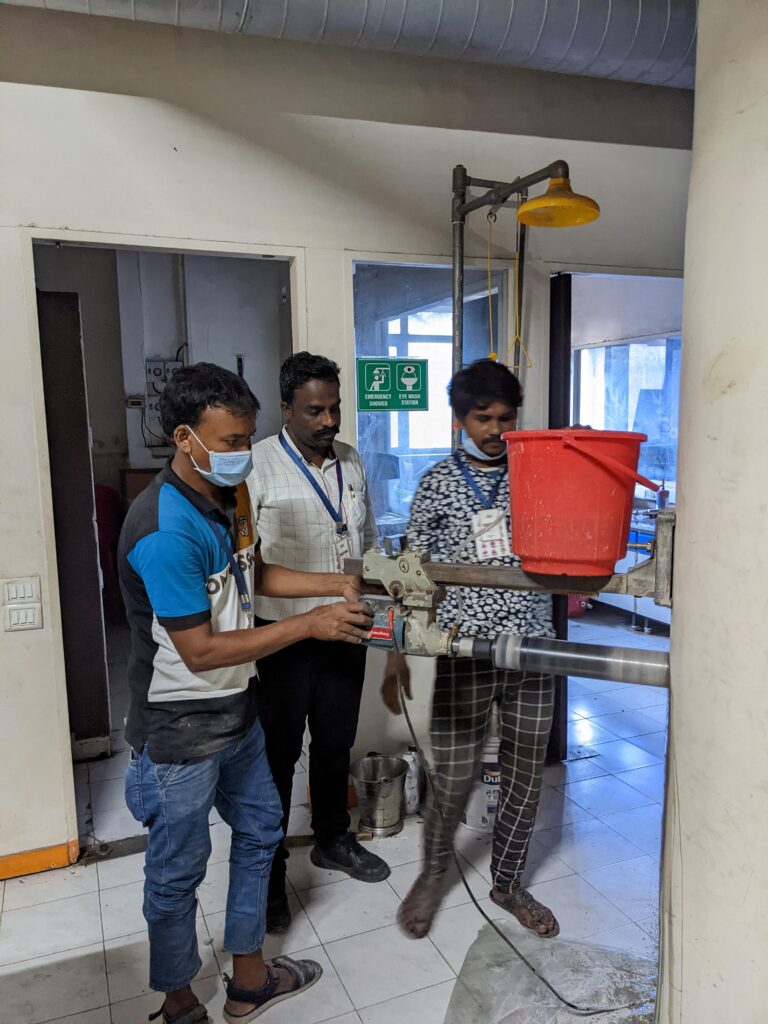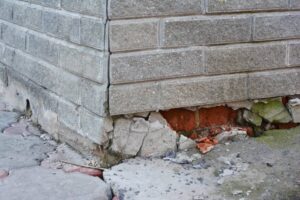Structural Audits & Every structure has a lifespan.
Over time, materials weaken due to weather, load, and neglect.
Without regular inspections, even minor cracks can turn into major structural risks.
A structural audits acts as a health check for your building — assessing its strength, safety, and stability.
It helps detect problems early and provides solutions before failure occurs.
At Aavishkaar Consultants, we specialize in professional structural audits designed to protect lives, property, and investment.
Understanding Structural Audits and Their Purpose
A structural audit is a scientific examination of a building’s condition.
It evaluates concrete strength, corrosion levels, stability, and load-bearing capacity.
The purpose is simple — ensure the building remains safe and serviceable.
Audits are recommended every 5 years for buildings under 15 years old, and every 3 years for older ones.
Through proper auditing, engineers can identify unsafe structures, recommend repairs, and prevent failures that may lead to collapse.
Structural audits are not just a legal requirement — they are a life-saving necessity.
Why Structural Audits Are Crucial for Building Safety
Regular audits act as an early warning system.
They reveal structural deterioration before it becomes dangerous.

Identifying Early Warning Signs of Damage
Auditors look for cracks, rusted reinforcements, water leakage, and foundation issues.
These small defects, if ignored, can grow exponentially over time.
By spotting them early, engineers can recommend strengthening or repair measures that extend the life of the structure.
Ensuring Compliance with Safety Standards
Audits also verify that buildings meet local safety codes and municipal norms.
Compliance reduces liability and ensures that the building is structurally sound for occupancy.
The Process of Conducting a Structural Audit
A proper audit follows systematic steps to deliver accurate results.
Visual Inspection and NDT Testing
First, engineers conduct a visual inspection to observe cracks, dampness, and corrosion.
Then, Non-Destructive Testing (NDT) methods like Rebound Hammer Test, UPV, Core Test, and Half-Cell Potential Test are performed.
These tests help assess the internal strength without damaging the structure.
Detailed Structural Assessment Report
After testing, a comprehensive audit report is prepared.
It includes findings, photographs, and suggestions for repairs, waterproofing, or structural strengthening.
This report becomes an official record for compliance and redevelopment planning.
How Structural Audits Prevent Building Collapses
Buildings rarely collapse without warning — they fail due to ignored warning signs.
A proper audit identifies these signs in time.
Through testing and expert evaluation, weak zones are strengthened, water ingress is controlled, and corrosion is minimized.
Preventive maintenance becomes more efficient, reducing the risk of sudden collapse.
In short, structural audits save both life and money — by preventing accidents and costly emergency repairs.
Aavishkaar Consultants – Ensuring Safe and Strong Structures
Aavishkaar Consultants is a trusted name in Structural Audits, Project Management Services, Building Repairs, and Redevelopment Projects.
Our engineers perform scientific assessments using NDT techniques and advanced tools to ensure your building’s safety and longevity.
📞 Contact: 9819845747
🌐 Visit: www.structuralauditor.in
Conclusion – Build Safety, Trust, and Longevity
Structural audits are not expenses — they are investments in safety.
They help societies, developers, and owners ensure that buildings remain strong for generations.
With periodic audits, preventive maintenance, and professional guidance, you can stop small issues from turning into disasters.
Choose Aavishkaar Consultants — your trusted partner in building safety and stability.






I found this blog on “How Structural Audits Help Prevent Building Collapses” really informative and eye-opening! 🏗️ It’s a great reminder of how timely inspections can literally save lives. As someone from SMCS Chess Academy, I can relate to the importance of planning, structure, and regular evaluation — whether it’s in buildings or in chess strategies. Excellent post! 👏♟️
— SMCS Chess Academy (Online Chess Training)
Great blog! Structural audits are honestly a lifesaver. Just like in chess, early evaluation helps prevent major blunders — and in buildings, that means avoiding dangerous collapses. Loved how clearly you explained the importance of regular inspections and safety checks. At SMCA Chess Academy, we believe strong foundations matter everywhere, in learning and in life. Keep sharing such valuable insights!
For anyone looking for structured growth in chess, you can also check us out at SMCA — https://smca64.com/.”